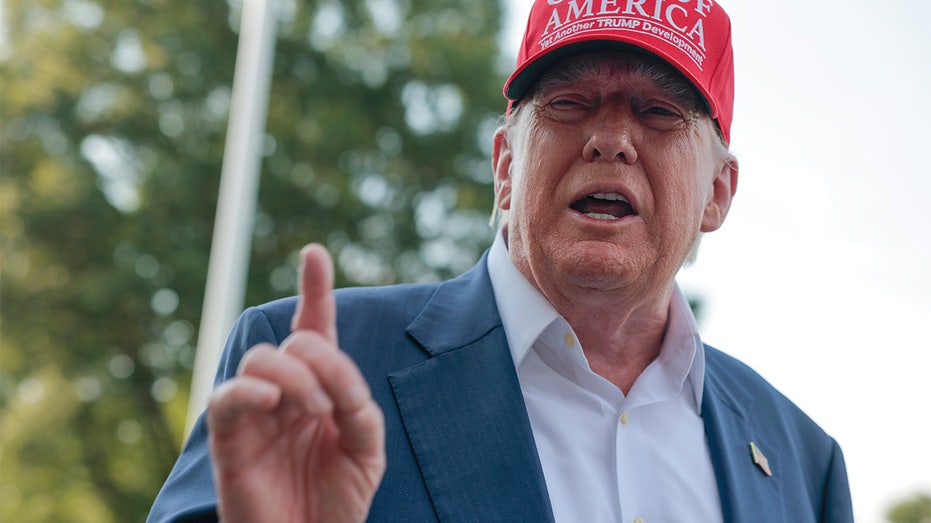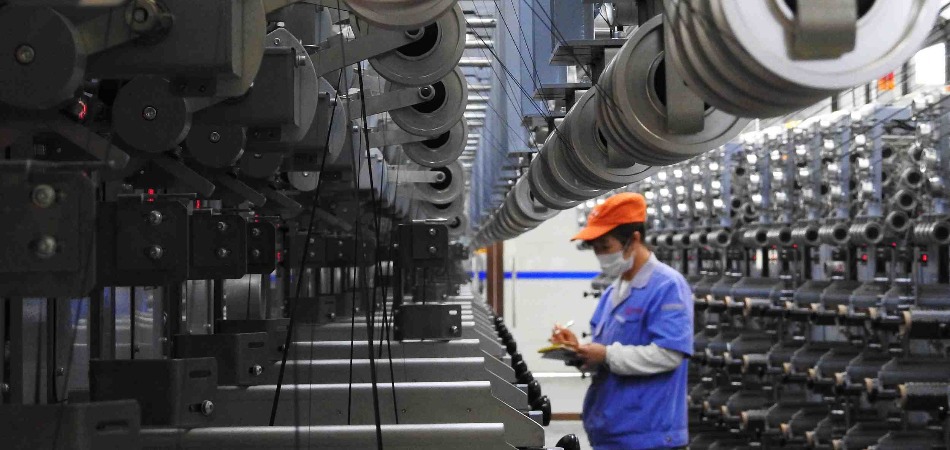Trump: 'Unfair trade' in steel, aluminum decimating US industry

By MG News | March 02, 2018 at 09:58 AM GMT+05:00
US President Donald Trump lashed out Thursday at "unfair trade" as he weighs whether to impose tariffs or quotas on cheap steel and aluminum imports that he said are decimating US producers.
Trump was due to huddle at the White House on Thursday with steel and aluminum industry representatives, who would be among the principal beneficiaries of any new barriers to competing imports.
A top Trump economic adviser, Gary Cohn, meanwhile was to meet separately with Chinese economic adviser Liu He at the White House.
Trump did not single out any country in the tweet on trade but he faces a decision on whether to impose duties or limits on product from China, Russia and other countries to combat a worldwide glut of the metals.
The White House had been expected to make an announcement as early as Thursday but the Washington Post reported it had been postponed amid mounting opposition to the proposed trade sanctions within the administration and in Congress.
Other US industries have also pushed back, warning that trade restrictions would drive up their costs and invite retaliation from exporting countries.
"Our Steel and Aluminum industries (and many others) have been decimated by decades of unfair trade and bad policy with countries from around the world," Trump tweeted early Thursday.
"We must not let our country, companies and workers be taken advantage of any longer. We want free, fair and SMART TRADE!"
The Commerce Department, in its investigations into the national security risks of the global oversupply of steel and aluminum, has laid out an array of possible options, including a tariff of at least 24 percent on all steel imports worldwide, and a similar tariff on aluminum imports from China, Russia and three other countries.
- Pushback from industry -
Other options would impose either high tariffs or quotas on steel and aluminum imports.
Trump has until mid-April to decide what remedies to impose, if any, but any US action is likely to be challenged by exporting nations in the World Trade Organization.
Commerce Secretary Wilbur Ross found that cheap imports impaired US national security by making domestic production unviable.
The administration of former President Barack Obama also sought to tackle long-standing concerns about Chinese overproduction, but emphasized talks with Beijing rather than punitive measures.
The proposed sanctions could hurt other countries more than China, which is the world's largest steel producer but accounts for less than one percent of US imports and sells only 10 percent of its wrought aluminum abroad.
Among those due to meet with Trump were representatives of US Steel, Timken Steel, ArcelorMittal and Nucor.
Analysts say the Trump administration has taken an unusual tack by making the case for tariffs or quotas on national security grounds, expanding the set of capabilities and supplies deemed crucial to defense preparedness.
In a letter to the president on Tuesday, industry groups representing the auto as well as oil and gas industries among others rebutted this claim.
"Such trade measures will serve as a drag on overall US economic growth and far outweigh any benefit to steel and aluminum producers," the letter said.
Chinese and US officials exchanged harsh words this week after the Commerce Department moved ahead with duties on imported Chinese aluminum foil, which US officials said were dumped on the US market at below fair value and unfairly subsidized by Beijing. The United States imports nearly $400 million worth of Chinese aluminum imports a year.
Related News
| Name | Price/Vol | %Chg/NChg |
|---|---|---|
| KSE100 | 131,176.40 73.64M |
0.37% 489.75 |
| ALLSHR | 81,639.81 346.18M |
0.41% 334.56 |
| KSE30 | 40,111.55 31.92M |
0.42% 166.10 |
| KMI30 | 191,132.18 37.36M |
0.23% 434.13 |
| KMIALLSHR | 55,131.55 169.19M |
0.10% 57.39 |
| BKTi | 35,005.42 6.16M |
1.26% 437.02 |
| OGTi | 28,583.18 2.85M |
-0.54% -156.17 |
| Symbol | Bid/Ask | High/Low |
|---|
| Name | Last | High/Low | Chg/%Chg |
|---|---|---|---|
| BITCOIN FUTURES | 109,350.00 | 110,525.00 109,350.00 |
-1065.00 -0.96% |
| BRENT CRUDE | 68.68 | 68.89 68.37 |
-0.12 -0.17% |
| RICHARDS BAY COAL MONTHLY | 97.50 | 0.00 0.00 |
0.75 0.78% |
| ROTTERDAM COAL MONTHLY | 108.45 | 0.00 0.00 |
0.25 0.23% |
| USD RBD PALM OLEIN | 998.50 | 998.50 998.50 |
0.00 0.00% |
| CRUDE OIL - WTI | 66.99 | 67.18 66.69 |
-0.01 -0.01% |
| SUGAR #11 WORLD | 16.37 | 16.40 15.44 |
0.79 5.07% |
Chart of the Day
Latest News
Top 5 things to watch in this week
Pakistan Stock Movers
| Name | Last | Chg/%Chg |
|---|
| Name | Last | Chg/%Chg |
|---|




 FX Reserves
FX Reserves
 CPI
CPI